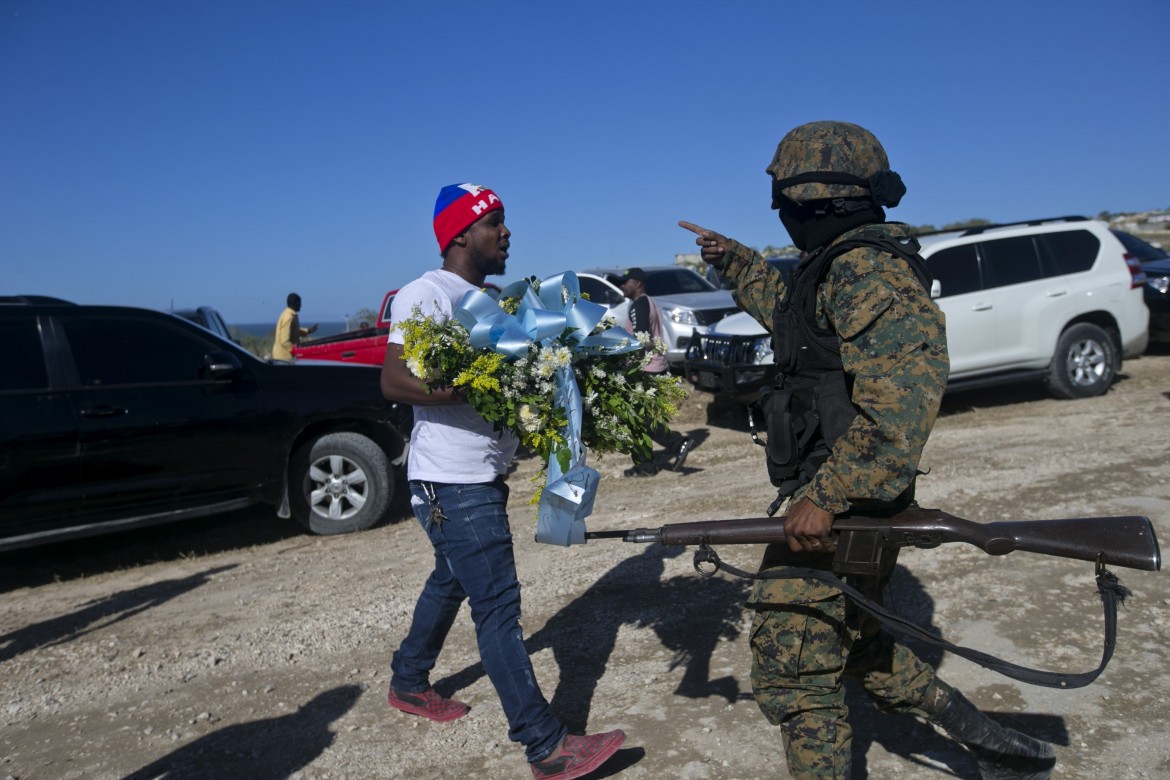Analysis
Poverty, violence, corruption – the ongoing Haitian earthquakes
Ten years after the Haiti earthquake of 2010, tens of thousands remain homeless and cholera is a sleeping, but ever-present, threat. Natural disasters continue to undermine this fragile society, where a quarter of the population earns $1.9 per day.

Over 220,000 dead, 300,000 collapsed buildings, 1.5 million displaced persons: these are the approximate figures describing the aftermath of what was one of the deadliest earthquakes in recorded history.
On Jan. 12, 2010, at 4:53 p.m., a 7.0-magnitude earthquake, with its epicenter 25 km from Port-au-Prince, dealt the country a severe blow, devastating the capital and the surrounding areas. There has been a high level of support from the international community in the aftermath, but the many intrinsic problems that the Caribbean state is facing have hindered its recovery, and the situation is still highly critical today. There are still around 34,000 people who have not recovered permanent housing, a total of 8,500 families, some of whom still live in temporary tent camps.
According to the latest data from the UNDP (United Nations Development Program), the people living in extreme poverty (i.e. living on less than $1.9 per day) represent 25% of the population, a percentage that increases dramatically to 58.5% when we count all those who are below the national poverty line (an income level determined in accordance with the cost of living in the country): 6.4 million people in total. Only two-thirds of the population (65%) have access to drinking water, the illiteracy rate is 38.4%, and child labor involves more than a third (35.5%) of children between the ages of 5 and 17.
These figures are already dispiriting, but the situation seems even bleaker when we take into account the strong political and social tensions that have affected the country in recent years. Since July 2018, the country has been in revolt against the current government led by Jovenel Moïse, after the “Petrocaribe” scandal, a major corruption case (in which the two former prime ministers before Moïse have also been implicated) about the theft of $3.8 billion meant for the development of the country. Petrocaribe is an oil deal pushed by the then-president of Venezuela, Hugo Chávez, which involved the sale of oil by Venezuela at advantageous prices to the countries taking part in the program, in order to facilitate their development.
Since the news of the corruption scandal broke, violent protests have ignited throughout Haiti. The largest of them, which took place last February, completely paralyzed the country, and clashes with the authorities led to 40 dead and about 80 wounded, according to data from the National Human Rights Defense Network. According to the Corruption Perceptions Index, Haiti ranks 161st out of 180.
There has been a lot of commentary in recent years about the reasons for the failure to rebuild the country, and the accusations have been aimed mainly toward the many NGOs operating there. There has even been talk of a “republic of NGOs,“ implying that their massive presence has hindered the recovery of businesses.
On the other hand, the endemic difficulties persisting in the country bordering the Caribbean Sea have not been given their proper due. As Manuel Simoncelli, who worked for the International Cooperation in Latin America and the Caribbean (COOPI) for 10 years, explained to il manifesto, “Haiti is marked by a persistent situation of political instability and socio-economic fragility that we can basically describe as chronic and highly dependent on external factors. There is a major lack of infrastructure and public services, a low level of social protection and high unemployment. Moreover, food insecurity and malnutrition make the population very vulnerable to shocks and highly exposed to the risks of disasters and emergencies caused mainly by adverse natural events.”
The earthquake of 2010 is not an isolated event. Since then, three hurricanes have struck Haiti (Sandy in 2012, Matthew in 2016, Irma in 2017), and another strong earthquake (magnitude 5.9) hit the northern part of the country in 2018, causing 11 deaths and the collapse of many buildings. In more general terms, according to the Global Climate Risk Index, the country is in fourth place among those that have been most seriously affected by extreme weather events in the last 20 years (1998-2017).
The problem of epidemics is also tied to natural disasters. One will recall the dramatic cholera outbreak during the years following the earthquake, worsened by tropical storm Isaac and hurricane Sandy: with almost 9,000 victims, it is one of the worst cholera epidemics in history. “Today, the situation is under control,” Simoncelli tells us, “but as long as cholera still circulates in Haitian territory, a sudden surge and expansion of the epidemic is still possible.”
He is also keen to talk about the emergencies the country is facing in the near future: “With the end of the UN peacekeeping mission in October 2019, there is a risk of a further escalation of political violence and criminal activities. Due to the economic crisis and the growing levels of violence, migration flows are increasing, exposing vulnerable people to further risks, including statelessness. The food and nutrition crisis in Haiti is not getting enough visibility and attention from the international community, and it may end up being classed as a ‘forgotten crisis.’”
Originally published at https://ilmanifesto.it/poverta-violenza-corruzione-i-troppi-terremoti-di-haiti/ on 2020-01-14
